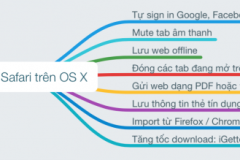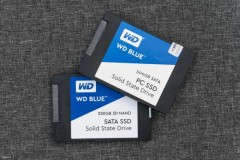ROCKVILLE, Md., March 08, 2023 (GLOBE NEWSWIRE) -- MaxCyte, Inc., (Nasdaq: MXCT; LSE: MXCT), a leading, cell-engineering focused company providing enabling platform technologies to advance the discovery, development and commercialization of next-generation cell-based therapeutics and to support innovative, cell-based research, today announced the formation of its new Scientific Advisory Board (SAB) that will reflect the cutting edge of research in molecular design and cell engineering, as well as a deep understanding of translational development, in order to leverage the benefits of impactful discoveries for therapeutic applications.
“With the formation of our Scientific Advisory Board, we are expanding the depth and breadth of our leadership team and scientific expertise with the next generation of leaders in the field of gene and cell therapy,” said Doug Doerfler, President and CEO of MaxCyte. “These four dynamic scientists are deeply connected in the scientific community through their work and memberships in professional societies and will bring the innovation and support needed to nurture our early-stage projects from beginning to end.”
Each of these individuals has a unique background and brings a diverse scientific perspective. Supported by deep technical knowledge, the SAB will help us unlock the power of cells, which will enhance our R&D activities and portfolio,” said Cenk Sumen, PhD, Chief Scientific Officer of MaxCyte. “With the SAB’s guidance, we aim to provide our clients with innovative cell engineering applications that accelerate the development of novel therapies to improve patient outcomes.”
Members of the MaxCyte Scientific Advisory Board include:
Oliver Rando, MD, PhD, is a professor in the Biochemistry and Molecular Biotechnology Department at the University of Massachusetts Worcester T.H. Chan School of Medicine and principal investigator within the Rando Lab, which is focused on genomic approaches to chromatin structure and function, as well as epigenetic inheritance. He completed his PhD and MD at Stanford University in Palo Alto, California, working on chromatin remodeling and T-cell activation in the lab of Jerry Crabtree. Dr. Rando received a Bachelor of Arts in Biochemistry from Harvard University in Cambridge, Massachusetts while working on the role of the proteasome in activation of NF-kB in the lab of Tom Maniatis.
Marcela Maus, MD, PhD, FABIM, is an associate professor of medicine at Harvard Medical School and the director of Cellular Immunotherapy at Massachusetts General Hospital Cancer Center. She oversees the Maus Lab, which evaluates next-generation, genetically modified CAR T-cells as immunotherapy in patients with hematologic malignancies and solid tumors. Dr. Maus holds graduate degrees (M.D., Ph.D.) from University of Pennsylvania, where she completed graduate training with Dr. Carl June. Dr. Maus then trained in internal medicine at University of Pennsylvania and in hematology and medical oncology at Memorial Sloan Kettering Cancer Center. She also received a BS in Biology and Literature from Massachusetts Institute of Technology.
Avery Posey, PhD, is an assistant professor in the Department of Systems Pharmacology and Translational Therapeutics at the University of Pennsylvania Perelman School of Medicine. The Posey Lab focuses on the development of novel targets for CAR-T cell therapies, strategies to enhance the functional persistence of CAR-T cells, and the impact of changes in glycosylation on the tumor immune microenvironment. Dr. Posey holds a PhD in Genetics from the University of Chicago, and two BS degrees in Biochemistry and Bioinformatics from the University of Maryland, Baltimore County (UMBC). He completed his postdoctoral training in the laboratory of Carl June, where he generated glycosylation-specific chimeric antigen receptors to precisely target tumor-glycoforms of MUC1.
Nako Nakatsuka, PhD is a senior scientist/principal investigator in the Laboratory of Biosensors and Bioelectronics at ETH Zurich in Switzerland, whose research is focused on harnessing artificial DNA-based receptors called aptamers for small-molecule biosensing. Aptamers are integrated into nanoscale biosensors to monitor neurotransmitters with the goal of unraveling the basic mechanisms of neurodegenerative diseases. Beyond neuroscience, novel aptamer-based biosensors are being developed with the vision of translation for personalized medicine. Dr. Nakatsuka completed her PhD in Chemistry at the University of California, Los Angeles, while working in the labs of Anne Andrews and Paul Weiss. Her thesis exploited aptamers to overcome the conventional bottlenecks of electronic biosensing of small molecules in complex biological environments. She also joined the bionanotechnology research lab of Professor Ipsita Banerjee at Fordham University in New York while completing her BS degree in Chemistry.
About MaxCyte
MaxCyte is a leading, cell-engineering focused company providing enabling platform technologies to advance the discovery, development and commercialization of next-generation cell therapeutics and to support innovative, cell-based research. Over the past 20 years, we have developed and commercialized our proprietary Flow Electroporation® technology, which facilitates complex engineering of a wide variety of cells. Our ExPERT™ platform, which is based on our Flow Electroporation technology, has been designed to support the rapidly expanding cell therapy market and can be utilized across the continuum of the high-growth cell therapy sector, from discovery and development through commercialization of next-generation, cell-based medicines. The ExPERT family of products includes: four instruments, the ATx®, STx® GTx® and VLx™; a portfolio of proprietary related processing assemblies or disposables; and software protocols, all supported by a robust worldwide intellectual property portfolio. Learn more at maxcyte.com and follow us on Twitter and LinkedIn.
MaxCyte Contacts:
US IR Adviser
Gilmartin Group
David Deuchler, CFA
+1 415-937-5400
ir@maxcyte.com
US Media Relations
Spectrum Seismic Collaborative
Valerie Enes
+1 408-497-8568
valerie@spectrumscience.com
Nominated Adviser and Joint Corporate Broker
Panmure Gordon
Emma Earl / Freddy Crossley
Corporate Broking
Rupert Dearden
+44 (0)20 7886 2500
UK IR Adviser
Consilium Strategic Communications
Mary-Jane Elliott
Chris Welsh
+44 (0)203 709 5700
maxcyte@consilium-comms.com
















